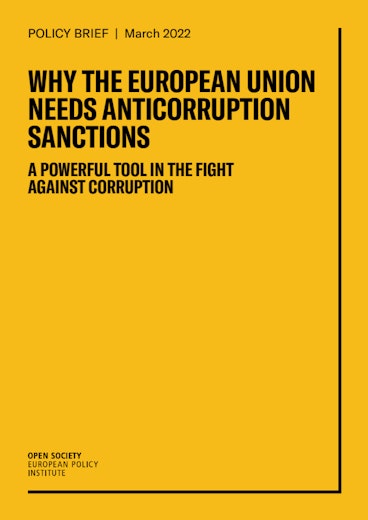In December 2020, the EU adopted the landmark EU Global Human Rights Sanctions Regime, but unlike its allies, failed to include corruption as a sanctionable activity. Recent revelations from the Pandora and Panama Papers shone a spotlight on secret offshore accounts in western jurisdictions and show the urgent need to act against kleptocratic and illicit money flows.
This global political momentum in the fight against corruption—together with a growing realization that corruption is a threat to the stability and security of democracy, rule of law, and human rights—is a crucial opportunity for the EU and its member states to adopt legally sound anti-corruption sanctions. Furthermore, adopting a robust anticorruption sanctions regime would enable the EU to coordinate with like-minded allies such as the United States, United Kingdom, Canada, and Australia, to meet its foreign policy objectives.
Download
-
Why the European Union Needs Anticorruption Sanctions (222.85 Kb pdf file)
Download the 14-page policy brief.
Read more
Resilience in Moldova
Q&A: Moldova’s Path to a European Future

Moldova has endured the Kremlin’s aggression because it has chosen to leave Russia's sphere of influence and supports Ukraine. The impact of the war on daily life—and why the nation is determined to join the EU.
Rethinking the EU
In an Age of Crisis, an Opportunity to Remake the EU

From climate change to rising authoritarianism, Europe is facing a range of crises that threaten the way we live. The EU must seize the opportunity to reshape how it works and rethink what role it plays in a changing world.
Corporate Responsibility
Q&A: Why (Some) Investors Want More Regulation

As the EU works on rules to protect worker rights and the planet from corporate harm, Open Society’s Jon Jacoby spoke to Anita Dorett, of the Investor Alliance for Human Rights, about how investors are pushing for change.
